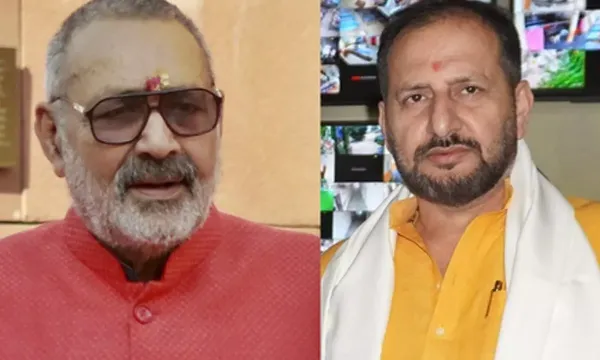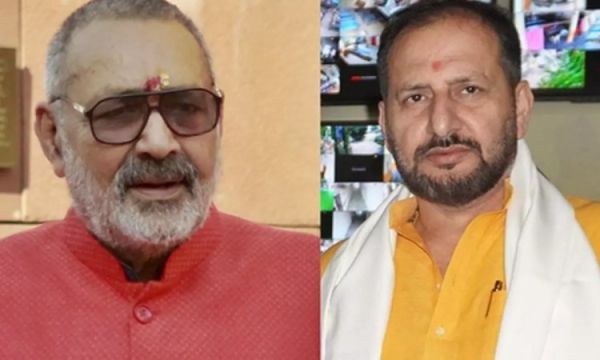
Leaders from all sides of the political spectrum have responded sharply to the recent violent demonstrations against the Waqf Act in Murshidabad, West Bengal.

Neeraj Kumar Singh Bablu, the PHED Minister for Bihar, has been one of the most outspoken, threatening to impose President’s Rule on the state if the Mamata Banerjee-led West Bengal administration is unable to maintain peace and order.
Everyone must abide by the Waqf Law as enacted by Parliament, according to the Union Home Minister. Action must be done if state officials permit demonstrations that become violent. The President’s Rule must be applied if the West Bengal administration is unable to control the protest. We will not let Mamata Banerjee’s attempt to transform Bengal into Bangladesh,” Bablu said.
When opponents of the Waqf Act attempted to barricade National Highway 12, the demonstration in Murshidabad descended into violence, resulting in stone-throwing, burning, and a full-scale altercation with the police.
Authorities had to deploy tear gas and lathi charges to disperse the mob after more than a dozen police officers were hurt and several police cars were set on fire.
West Bengal Chief Minister Mamata Banerjee was blamed for the collapse of law and order by Union Textile Minister Giriraj Singh, who joined the chorus of critics.
The appeasement policies of Mamata Banerjee are directly responsible for the bloodshed in Murshidabad. Although she speaks about the law, her administration is unable to even defend police stations. Stones are hurled, trains are halted, and she does nothing,” Singh added.
Additionally, he criticised Tejashwi Yadav, the Leader of the Opposition in Bihar, for opposing the Waqf Act, saying that his comments about repealing the Act if elected demonstrated indifference to impoverished women and Pasmanda Muslims.
Although Tejashwi wants to ignore the Waqf Act, it guarantees justice and openness for Muslims who are less fortunate. Singh said that the Act was approved by Parliament and that no one could reverse it, saying that he is simply interested in vote-bank politics.
Recently enacted by Parliament, the Waqf Act 2025 promises to improve Waqf property administration via “transparency”, “centralisation of records”, and “stricter compliance” methods.
Supporters claim the Act would empower the underprivileged, especially Pasmanda Muslims, while detractors claim it interferes with religious autonomy.